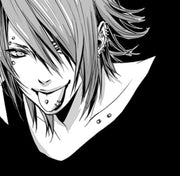Interior photos from the various 20471120 stores at it's peak around 1996, Masahiro Nakagawa shares various film photos from his stores in an interview. Explaining how each & every store was very thought out & planned.


Interior of Jingumae store
As you see from the scans each store was unique in itself with bright red carpets, to a Sky printed along the walls & ceilings. Some stores had red marble floors with classy high end chandeliers hanging from ceilings, etc. Even in some stores seeing bright white metal walls & ceilings illuminated behind with lights, giving a futuristic energy to customers entering. He stated in an interview "At its peak, it increased to about 100 stores. The number of directly managed stores has increased to 6 if we include in-shops." The majority of the stores were unique in their own ways each varying with their own unique look.

Masahiro Nakagawa Working
So you can imagine how having so many stores allowed for so much product to be in circulation which is what gave birth to the huge popularity in the Harajuku community, it was the accessibility to all the stores throughout japan. The story behind the brand allowed for consumers to feel safe in a safe space at the stores, where they can express their emotions through their clothes.


Harajuku Store Interior (1999)


Abeno Store

Sources: Hagazine
Ishimaru , G. (n.d.). #03 「20471120」を知らない子供たちへ──忘れられた裏原史|GUEST|中川正博. HAGAZINE. https://hagamag.com/series/s0058/3755.
